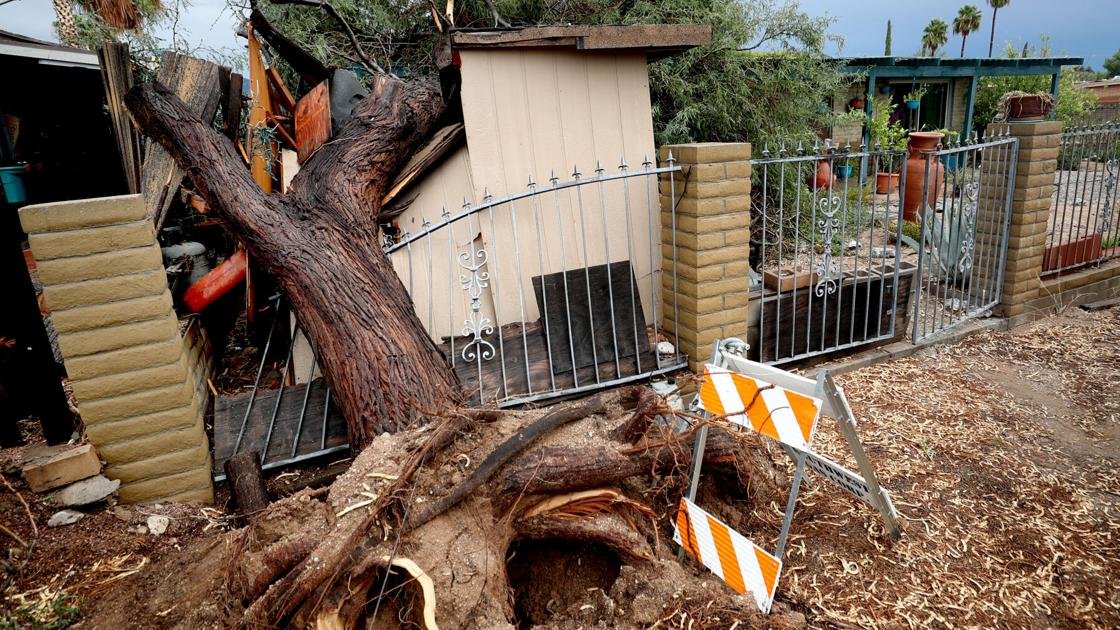Question: My insurance rates keep increasing and I don’t have any claims. Why is this happening?
Answer: We have heard stories about or experienced first-hand, rising homeowners insurance rates. Rosie on the House certified partner Clay Janson, agency principal with Phocus Insurance Services, discusses the causes of the rate increases and helps us navigate ways to help reduce those costs.
The insurance industry is very complex. Janson tells us that no two insurance carriers are created equal. Therefore, this information will be generalized. Every carrier rates the importance of potential claims you might have on your home differently.
It is no surprise to many of us that the increasing number of natural and manmade disasters has risen over the past few years. From hurricanes to forest fires and a slew of other causes, insurance companies have been hit hard financially paying out claims. Janson tells us billions of dollars in claims, coupled with increasing potential for claims, whether perpetrated by man or nature, are causing rates to rise for companies who not only try to remain solvent but also profit. Increases of 25% to as much as 75% in premiums are not unheard of.
People are also reading…
If you get a notice that your premiums are going to increase, or even be canceled, Janson tells us there are some steps you can take. The insurance industry term for making improvements and repairs to your property is called “hardening.” This means you are investing in your house, home, castle or cabin by removing threats of potential damages leading to a possible claim. Some steps are big and others are low-hanging fruit. Janson warns us again that every carrier is different, so check with them before making any significant investment to determine if your actions will help reduce premiums.
Roof: One of the most common claims is damage from wind, hail and debris to your roof. If you replace your aging roof with a new system, that could lead to a discount.
Water shut off systems: This is a leak detection system that will detect water on the floor. Once detected, it will shut off the water supply to your home. Insurance companies pay out huge sums for interior water damage claims. Installing such a system could lead to a discount.
Updates to older electrical panels or systems: By bringing older electrical systems up to the current code through panel updates, installing ARC fault and GFI outlets, and adding smoke and CO2 detectors, you may be eligible for discounts.
Landscaping: If you are in an area prone to wildfires, follow the advice and directions of your local Urban Wildland Interface with your landscaping systems. This will reduce the likelihood of a fire reaching your home.
Tree trimming: Make sure your trees are not a threat to your home from damage by wind or abrasion.
Janson also tells us that insurance companies will often send a letter that outlines improvements on your outdoor property that you may be required to make. There are several ways companies know about these improvements, including the use of aerial and ground inspections. That is satellite imagery and drive-by inspectors.
There are two basic approaches to selecting the insurance program that is right for you.
You can interview carriers yourself by contacting them individually. Janson advises again that no two companies use identical criteria for determining premiums. Before you contact them, asses your personal coverage needs.
The other approach would be to engage an independent insurance agent. An independent insurance agent has access to multiple carriers and the education, licensing and experience to help you determine your insurance needs and research the best carrier for your situation.
If you want to search on your own, Janson advises there are several industry discounts that you should be sure to ask for. When you engage companies, ask about these discount opportunities.
Paid in full discount: Is there a discount if you pay your annual premium in full, upfront instead of monthly payments?
Advance quote: If you inquire several weeks before your current policy lapses instead of waiting until the last minute, some carriers will offer a discount. Janson says a two-week window would be a minimum.
Bundle: Combining your home and auto insurance often yields a discount.
Alarm systems: Let the potential carrier know if you have an alarm system in your home for fire, burglary or even the water leak detection system we mentioned earlier.
Credit score: Whether you are shopping or renewing, and if your credit rating has improved or is a good rating, this may also lead to a discount.
Keep copious notes regarding quotes from different companies. Comparing them may be tricky as they are rarely apples-to-apples.
If you go online, you may be directed to a 1-800 number. Janson recommends calling and talking directly to an agent.
This is a lot to think about. If you are research savvy and have the time to research options, you will benefit from the information above.
If such a task seems daunting and overwhelming, contact an independent insurance agency. These licensed professionals will do all the footwork for you. They know the discounts and can negotiate on your behalf, which will likely save you time, and money, and maybe even thwart a headache.
Tucson Water: Landscaping Scheduling
An Arizona home building and remodeling industry expert for more than 40 years, Rosie Romero is the host of the syndicated Saturday morning Rosie on the House radio broadcast, heard locally from 10 to 11 a.m. on KNST-AM (790) in Tucson.







